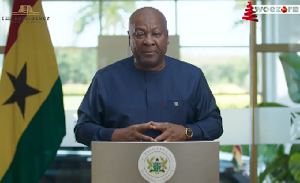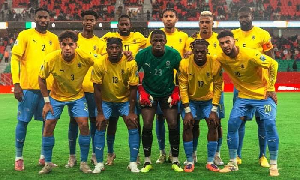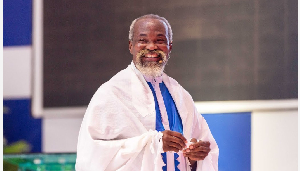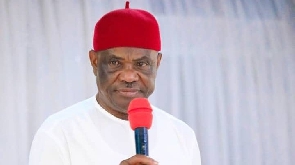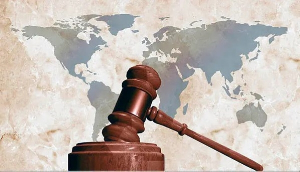On Wednesday, July 21, 2021, during a program on GHOne Today , I expressed my views on the LGBTQ+ issue: "I believe it is not right to impose this on our country. Throughout our many years of existence, we have not considered these things to be normal. We cannot suddenly accept them because of international relationships and support. We should not be forced to accept it just because of foreign support."
The people of Ghana have always valued and cherished the family system, from our great-grandparents to the present day. Our culture teaches us to uphold societal cohesion and procreate through natural means. The introduction of Islam and Christianity further reinforced our existing family and cultural system.
Ghana is predominantly a Christian country with a significant Muslim population. Millions practice traditional African religions. Historically, in Europe and Western societies, homosexuality has been seen as an emotional or physiological problem.
The stance of Ghana's major religions and culture on LGBTQ+ and homosexuality
In traditional African religions, homosexuality and LGBTQ+ are not practiced, thought of, or imagined. None of the over one hundred tribes/ethnic groups in Ghana have a history of homosexual or LGBTQ+ practices. It was not surprising that our grandparents readily accepted the criminalization of homosexuality and LGBTQ+ when they came under British colonial authority.
Today, the majority of Ghanaians are Christians, and the Holy Bible has a clear position on homosexuality and LGBTQ+. Leviticus 18:22 states, "Do not have sexual relations with a man as one does with a woman; that is detestable." Leviticus 20:13 further states, "If a man has sexual relations with a man as one does with a woman, both of them have done what is detestable." The use of the word "detestable" in both verses indicates God's strong disapproval of homosexuality and the LGBTQ+ issue.
Islam is the second major religion in Ghana, and along with Christianity, they make up about 85% of the Ghanaian population (according to the 2020Populationn and Housing Census). Islam considers homosexuality and LGBTQ+ to be grave sins. Homosexuality and LGBTQ+ go against the natural human nature created by Allah, where men are content as men and women as women.
The four Sunni schools of jurisprudence all agree that practicing homosexuality is a severe crime that should be punished harshly, although the schools may differ in the exact punishment. A Hadith of the Prophet of Islam also states that "Whoever you findsinningf the people of Lut (Lot), kill them, both the one who does it and the one to whom it is done" - if it is done with consent. (This hadith was narrated by al-Tirmidhi in his Sunan, 1376). The people of Lot were known for their homosexuality and LGBTQ+ practices in the destroyed ancient cities of Sodom and Gomorrah.
It is evident that the three major religions in Ghana are strongly against homosexuality and the LGBTQ+ issue, as it is believed to be unnatural and against the principles that bind our society together.
Looming dangers
We have witnessed how Western countries, particularly the USA, champion LGBTQ+ rights and move beyond boundaries, imposing dehumanizing practices on their citizens. These countries have started providing gender-affirming care for minors, allowing them to change their gender without parental consent. These practices in Western countries have diminished the positive influence parents have on their children. Gender-affirming care for minors can be considered child abuse and child sexual mutilation.
Through the LGBTQ+ agenda, the nuclear family's role in promoting positive education is undermined. The distinct differences between men and women are ignored, and society is forced to recognize non-existing genders. It is no longer limited to men and women or boys and girls; children in these Western pro-LGBTQ+ societies are made to believe that they could be trapped in the wrong body, resulting in body mutilation to achieve their "proper" gender.
As a country, we cannot allow ourselves to be influenced to accept something we do not believe in just because we seek external support. Western countries continue to pursue their development based on their beliefs, and we must do the same. The people I represent in parliament are strongly against homosexuality, and I will fight on their behalf to preserve, protect, and defend their interests.
Conclusion
It is evident that pursuing homosexuality or LGBTQ+ has no benefits for Ghana. We cannot accept or accommodate it. Our priority should be protecting the human rights of Ghanaian citizens, especially our children. We must all support the fight against this un-Ghanaian and un-African issue. I, Hon. Amidu Chinnia Issahaku, on behalf of the Sissala East constituents, strongly oppose homosexuality and the LGBTQ+ issue.
Opinions of Friday, 7 July 2023
Columnist: Amidu Chinnia Issahaku



